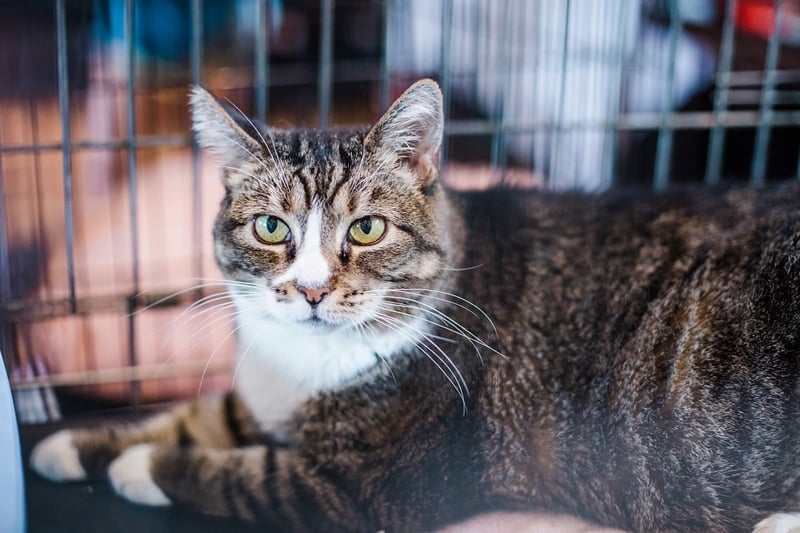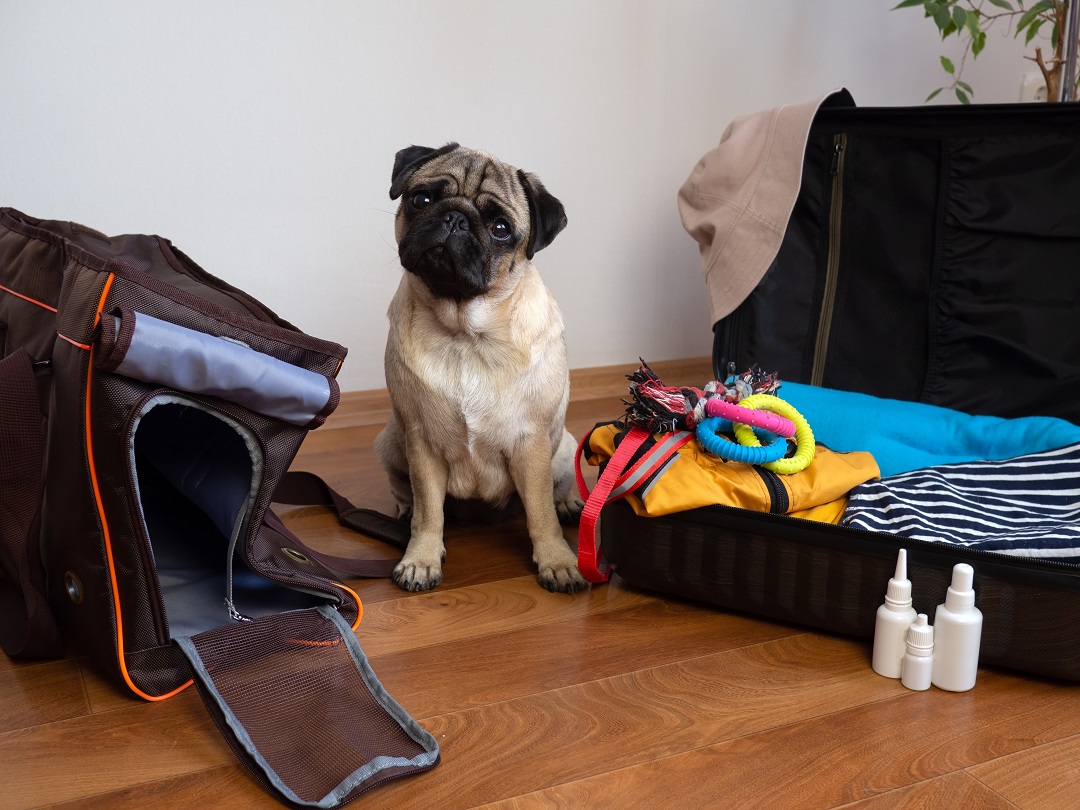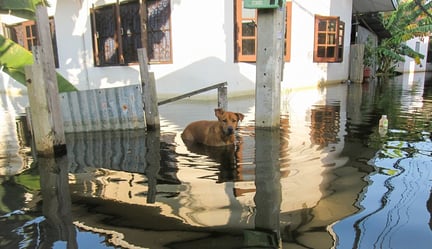
How to keep your pets safe during wildfires
Blog
As wildfires become more frequent and intense, protecting your pets is more important than ever. Here’s how you can keep your furry family members safe when disaster strikes.
When wildfires break out, the chaos doesn’t just threaten homes and human lives, it puts our beloved pets at risk too. Just like us, our companion animals can suffer from smoke inhalation, burns and severe anxiety during wildfire events. In these moments, your preparation can make all the difference.
At World Animal Protection, we believe that disaster readiness must include the animals we share our lives with. As climate change fuels more extreme weather and natural disasters, taking steps now to plan for your pet’s safety can help you act quickly and confidently when every second counts. Whether you’re evacuating or sheltering in place, this guide will help you protect your animals before, during and after a wildfire.
Preparation is key
- Make an evacuation plan: Map out where you’ll go in case you need to evacuate and make sure your pets are a part of this plan! Identify pet-friendly hotels, boarding facilities or friends and family who can safely accommodate your pets in an emergency.
- Keep your pet’s ID up to date: Ensure your pets have collars with identification tags and microchips with updated information. In the event of being separated, this will greatly increase your chances of being reunited.
- Build a pet emergency kit: Pack a kit with any essential supplies your pets might need for a least a week, including a crate/carrier, food, water, medications and any comfort items. For full list of what you need to be prepared, download our emergency preparedness checklist!
 Photo: Yekatseryna Netuk / Shutterstock
Photo: Yekatseryna Netuk / Shutterstock
Have farm animals? The Government of Canada has an emergency prepardness plan for farm animals.
Protecting your pets from smoke and ash
- Keep them indoors: When air quality is poor due to smoke and ash, limit your pets’ outdoor time as much as possible to protect their lungs and eyes.
- Limit strenuous exercise: Skip long walks or outdoor play when the air is smoky. Pets, especially those with health conditions, can be sensitive to even low levels of air pollution.
- Use air purifiers: Consider using air purifiers with HEPA filters to help remove harmful particles from indoor air.
- Clean paws after walks: Ash and soot can cling to your pet’s paws and fur. Use a damp cloth to gently clean them off after any outdoor exposure.
Staying safe during an evacuation
- Take pets with you: If you need to evacuate, make sure to bring your pets with you. Animals left behind can become trapped, injured or suffer from smoke exposure and extreme stress.
- Have a backup plan: If you cannot take your pets with you for any reason, arrange for a trusted friend, family member or pet-friendly shelter to care for them.
- Stay calm: Animals are highly attuned to our emotions. Staying calm can help reduce your pet’s anxiety during stressful evacuation.
In the aftermath of a wildfire
- Watch for hazards: Once it’s safe to return, make sure you check your home and yard for any hidden dangers like hot spots, debris or contaminated water before you let your pets roam freely.
- Care for vulnerable pets: Older pets and those with respiratory or cardiovascular conditions are especially sensitive to smoke. Monitor your pets closely and consult with your veterinarian if you have any concerns.
- Help reunite lost pets: Displaced and disoriented pets may wander through neighbourhoods. Drive carefully and be on the lookout for animals. If you find a stray pet, check for ID and contact your local animal shelter.
- Support injured wildlife: If you find injured wildlife, contact a licensed wildlife rehabilitator right away. They have the expertise to give further advice and provide proper care.
Wildfires are unpredictable and frightening, but by planning ahead, staying calm and taking thoughtful action, you can help keep your pets safe when disaster strikes.
Every step you take to protect your companion animals also helps ease the strain on emergency responders and animal care organizations.
Together, we can ensure that animals are not forgotten in times of crisis.
Protect your pet during an emergency
Get our checklist to help you make an emergency preparedness plan for your pet.
